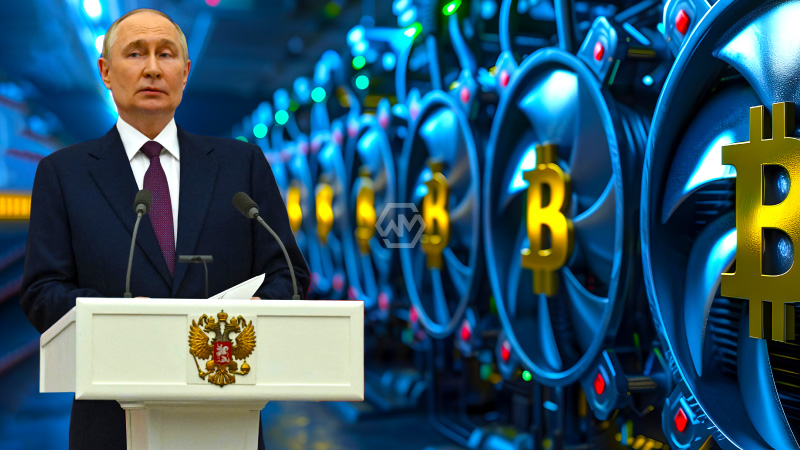- Putin warns of potential power outages due to unchecked Bitcoin mining.
- Russia ranks as the second-largest Bitcoin mining country after the US.
- New fiscal and tariff regulations ordered to control energy-intensive mining.
Vladimir Putin‘s recent directives on Bitcoin mining highlight growing concerns over its impact on Russia’s energy stability. With Bitcoin mining consuming a substantial 16 billion kilowatt-hours annually in Russia, equivalent to 1.5% of the nation’s total electricity usage, fears of regional power shortages have intensified. P
The regulatory push comes amid recent electricity cuts in regions like Dagestan, where aging infrastructure struggles to cope with increased demand. Putin’s administration is prioritizing the balance between economic opportunities presented by cryptocurrency
“Russia’s Bitcoin Mining Dilemma: Energy Consumption and Regulatory Responses”
Vladimir Putin’s recent stance on Bitcoin mining in Russia signals a critical juncture in the country’s approach to cryptocurrencies. Concerns over the industry’s staggering energy consumption, amounting to 16 billion kilowatt-hours annually, have prompted Putin to warn of potential power outages if unchecked. This stark warning follows Russia’s ascent to becoming the world’s second-largest Bitcoin mining nation, driven by favorable electricity costs and accessible mining equipment.
The regulatory response includes Putin’s order for fiscal and tariff measures aimed at controlling Bitcoin mining’s energy footprint. This move seeks to mitigate risks posed to Russia’s electricity supply and prevent disruptions that could impact residential areas, businesses, and social facilities. Moreover, the push for stricter federal laws underscores the government’s efforts to balance economic incentives with the need for energy stability.
Putin’s decision comes amidst broader challenges in Russia‘s energy sector, exemplified by recent power cuts in regions like Dagestan. These incidents highlight the urgency of regulating Bitcoin mining to safeguard national energy infrastructure and support sustainable economic development. As Russia navigates this evolving landscape, the regulation of cryptocurrency activities is poised to play a pivotal role in shaping the country’s energy policy and economic strategy.
In addressing the energy implications of Bitcoin mining, Putin’s regulatory directives underscore a proactive stance aimed at mitigating potential disruptions. As Russia moves forward, balancing cryptocurrency opportunities with energy stability remains a critical challenge requiring careful management and strategic oversight.



